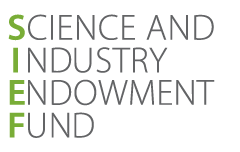Outcomes and Impact of the CSIRO Gift
This review examined the breadth and quality of research activities supported by the CSIRO Gift. It used structured interviews to evaluate the Research Projects Program that made up about 40% of the overall program.
- It concluded that SIEF made sensible choices in the selection of activities to support; and that these activities covered an appropriately wide area of Australian research priorities.
- It concluded that, in the main, the quality of research activities was high with ambitious goals; and that SIEF was effective in maintaining high standards in the conduct of the Research Projects through processes which included mid-term reviews by experts and adjustments of research objectives and allocations of resources.
The review considered the effectiveness of the application of the Gift:
- In relation to building capacity and capability in Australia’s scientific research, SIEF had a comparatively small but important impact. SIEF committed funding at the rate of about $25 million a year, which was small compared to Australia’s total annual expenditure on research and development of $35.6 billion in 2019-20. The quality of SIEF’s contribution to the building of capacity and capability was generally high.
- SIEF placed high priority on productive and enduring collaborations between researchers and users. The interview program conducted as part of the review demonstrated considerable effort in promoting collaboration. As described in the body of the report some of the collaborations have endured past the completion of the SIEF project. Most reported the value of the networks developed during the collaboration.
- SIEF was moderately successful in driving research activities to adoption by end users. As described in the body of the report, some Research Projects delivered good results from the perspective of impact On the other hand, All Research Projects contributed substantially to the stock of knowledge in the relevant areas.
An area of particular emphasis in the review was an examination of the governance structure set up to manage the application of the Gift. The structure comprised three main elements: the legislation (the Science and Industry Research Act 1949 and the Science and Industry Endowment Act 1926); the Deed of Gift(created by CSIRO); and the arrangements made by the Trustee (ex officio the Chief Executive of CSIRO), the Advisory Council appointed under the Deed and the SIEF Manager. These three elements proved to be very effective in providing modern, flexible and responsive management of the Gift. In its 2016 report, the Australian National Audit Office (ANAO) strongly endorsed the governance arrangements of SIEF. Those findings were further endorsed by this review with the addition that arrangements were intelligently tailored to the needs of managing scientific research in the 21st Century.
In light of comments made by interviewees, the review considered whether SIEF and its governance arrangements filled a gap in the national innovation system. We concluded that it did, and that the gap was for new research projects with certain characteristics:
- substantial size (say $5 million to $20 million over three to six years);
- substantial teams covering multiple disciplines in order to tackle large complex problems of special interest to Australia;
- clear objectives but requiring flexibility to amend in the light of experience;
- ambitious goals (with corresponding risk tolerance).
We agree with the conclusion of the CSIRO review of the John Stocker program that it has ‘led to the establishment of a highly successful and impactful SIEF STEM+ Business Fellowship program which is offering a valuable role in building deep connections between SMEs and research.
